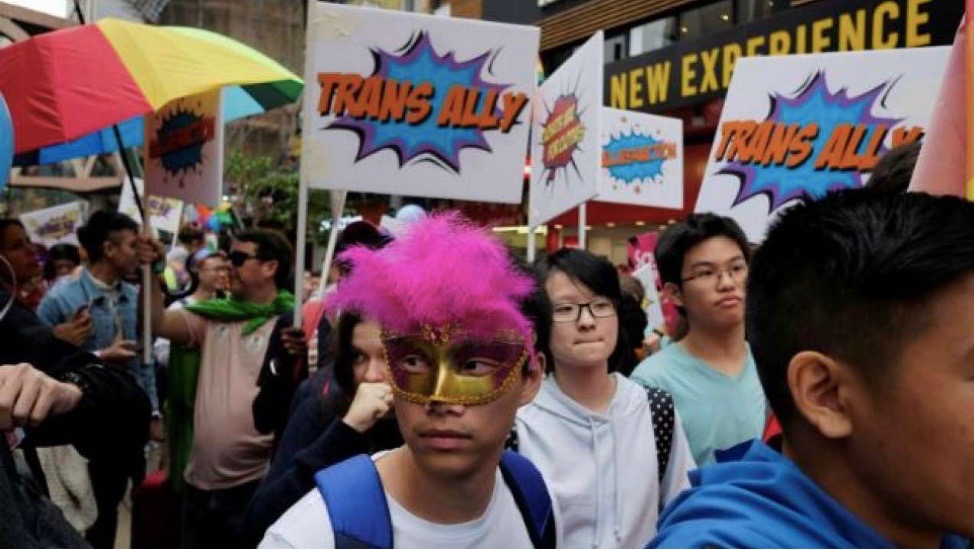YI NING WONG WRITES — LGBT issues in Hong Kong have rarely generated high levels of widespread public support. So how is it that Hong Kong’s top court just ruled in favor of a lesbian British expat applying for her wife’s dependent visa? That’s just what happened on July 4th, 2018. And it is a step in the right direction, if a tentative one.
Hong Kong’s Court of Final Appeal ruled in favor of “QT,” a Briton who waged a three-year case against the country’s High Court. To many in Hong Kong, this case is a landmark decision which protects and advances LGBT rights. And yet, the judgment has more to do with economic interests than social acceptance. Indeed, the decision was at most a partial victory for LGBT advocates, as the ruling pertains only to expats living in Hong Kong. Major firms pushed QT’s legal battle forward in order to boost Hong Kong’s economy; a joint statement released by 32 banks and law firms hailed the ruling for “[strengthening] Hong Kong’s ability to attract global talent and its competitiveness as Asia’s preeminent global center for commerce.”
According to Bloomberg, Hong Kong is ranked the world’s No.3 financial center, behind London and New York, both of which offer same-sex visa rights. Thus, it can be argued that Hong Kong’s basic Rule of Law was guided not by moral code or public interest but, rather, on the basis of cost analysis – and competitive vigor. The special region of China’s top public official Carrie Lam admitted that the ruling “was not about LGBT rights per se” but a “policy concerning the issue of dependent visa.”
Alas, Hong Kong still has a long way to go before LGBT rights are seen as a civil rights issue rather than an economic one. Policies for expats remain separate and distinct from those of local communities, and in many cases, there is still considerable opposition to the advancement of LGBT rights on the part of politicians as well as the public – though, unlike in some other Asian countries, religious opposition has proven less of a factor. But LGBT-themed books were banned from the Hong Kong book fair in 2017, and just this year ten children’s books were placed in the “closed stacks” of public libraries in the effort to discourage the “LGBT life-style.”
We can only celebrate true progress for the LGBT community when lives, as well as laws, are changed—for all citizens. But whatever the reason, Hong Kong does offer more LGBT civil liberties than, say, Singapore, which maintains rigid anti-LGBT laws and still views male homosexuality as a criminal offense. This difference is certainly worth noting.
Ms Yi Ning Wong, LMU ’18, is assistant managing editor of Asia Media International.

